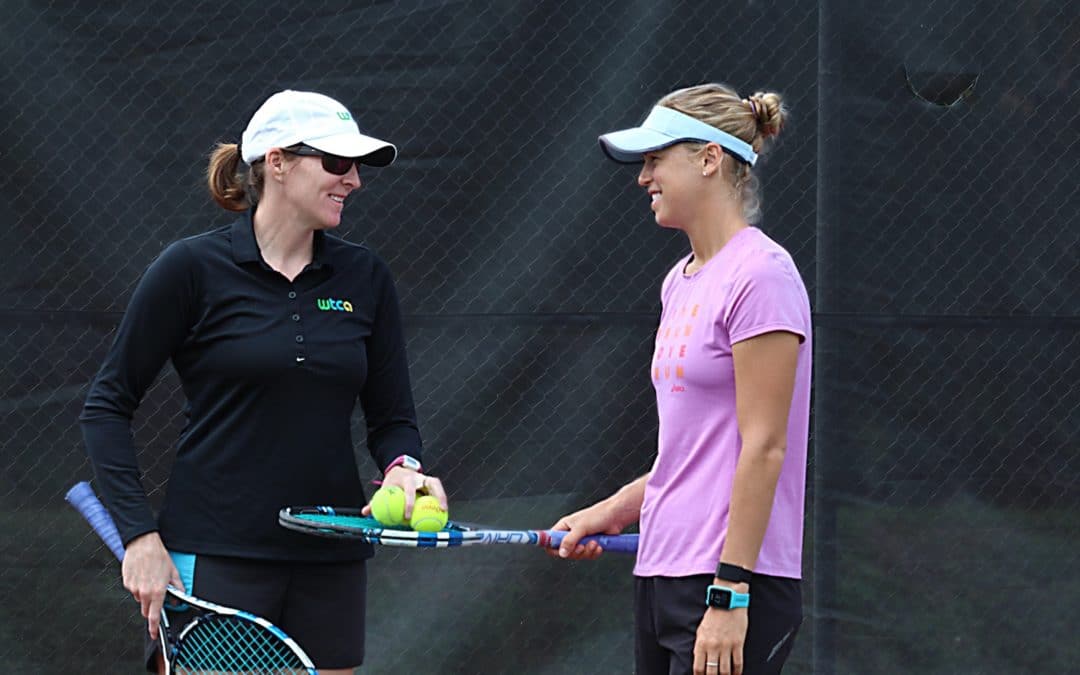Matchday can be stressful for a lot of athletes. Tennis can be somewhat unpredictable; you might play the best match of your life and walk away second best. It’s all about controlling the controllable. Of course, strategy and game plans are critical pieces of the puzzle, but what else can you do to give you the best chance to win?
- Arrive Early
Showing up with plenty of time to spare before your scheduled match might seem obvious or to some not that important, but feeling rushed, getting stuck in traffic, unexpected on-site delays all contribute to players feeling very stressed. If you have a match scheduled to start at 10 am and are warming up on-site (on-court), arrive at the courts at 8.30 by the latest. Make sure you have enough time to do your dynamic warm-up, hit some balls, change into your match gear, and relax before you step onto the court.
2. Be Prepared
The night before the match is when most players get their gear in order for the day ahead. Be sure to pack everything you might need. There is nothing worse than showing up without your shoes (yes, this happens over and over, even pros forget their shoes, shorts or skirts occasionally). The morning of your match, you don’t want to be worried about rushing to get your racquets strung, hoping that the stringer does them on time! Some players like to put fresh grips on every racquet before they walk out onto the court. Be sure to allow enough time to follow a consistent routine; this will help you manage your nerves.
3. Know the conditions and prepare accordingly
The sun or heat can wilt the fittest athletes in the world. Be sure to check the weather the night before and opt for light-colored breathable clothing on hot days. Wear sunscreen (unless you have a medical reason not to). In Australia, the UV index typically reaches 13 by 11 am. Heat exhaustion and Heatstroke can become serious medical issues. There will be times matches are scheduled during extreme heat so be sure to monitor symptoms such as
- A headache
- Dizziness and confusion
- Loss of appetite and feeling sick
- Excessive sweating and pale, clammy skin
- Cramps in the arms, legs, and stomach
- Fast breathing or pulse
- A temperature of 38C or above
- Being very thirsty
4. Know what works for you
Some players sit alone with their headphones on for the 30 mins before their matches, while others enjoy causal chat with their team during that time. There is no hard or fast rule but its advisable for players to avoid stressful situations. Keep away from people who drain your energy or distractions that prevent you from focusing on the task at hand. Creating a bit of a bubble means going through the same routine before every match. There will be plenty of time to catch up with friends and associates after the match. This can be tricky for junior players to navigate, and coaches want to make sure kids enjoy the competitive tennis experience. for younger players a good warm-up / alone time before the match routine is essential. Be sure to familiarize yourself with your surroundings. Those last few minutes before the match starts are super exciting and often terrifying at the same time. If you are competing at a new location, make sure you have some awareness of the facility layout. Juniors don’t always know which court they will be on until right before the match; however, it’s still valuable to have your bearings!
5. Implement team guidelines
Who does what on the support team can make a significant impact on the result of a match? Parents/coaches moving around when players lose games or excessively clapping can be very distracting for players. It’s illegal to converse with your team about sitting/supporting arrangements during the match, so it’s essential to clarify what support looks like before you step onto the court. When it comes to these parameters, the player is the boss. A coach can support their player, ensuring parents understand their role on the team.

